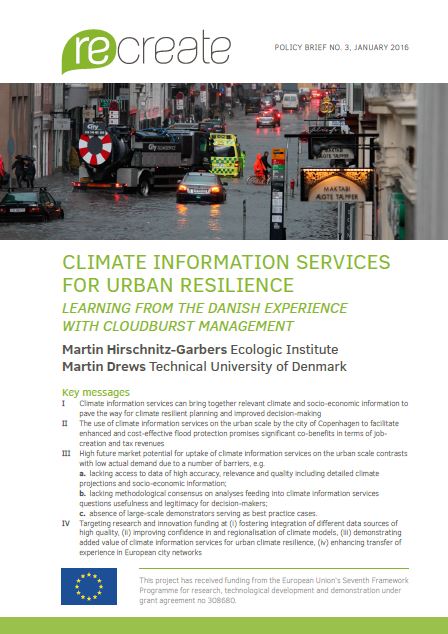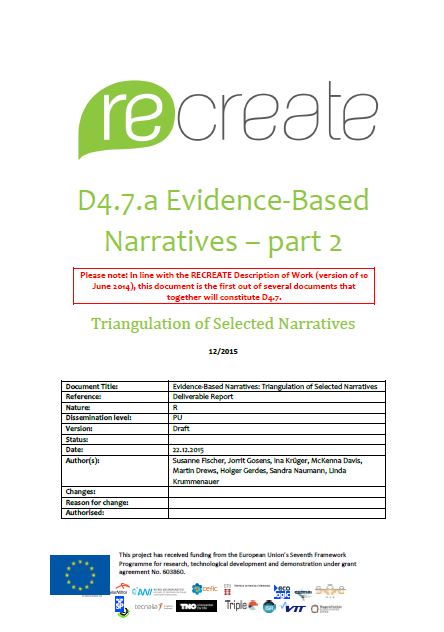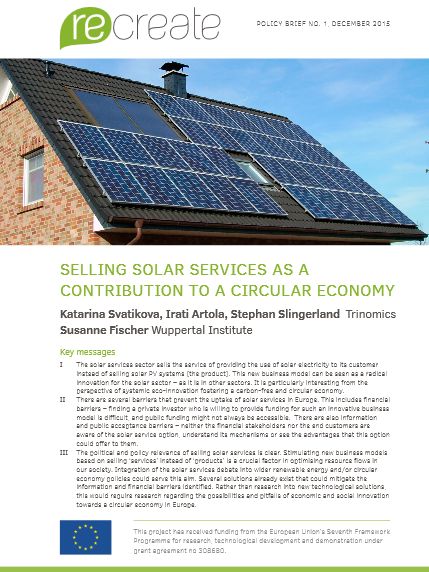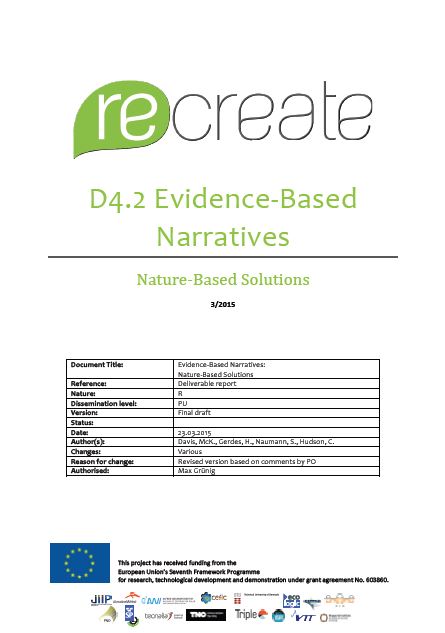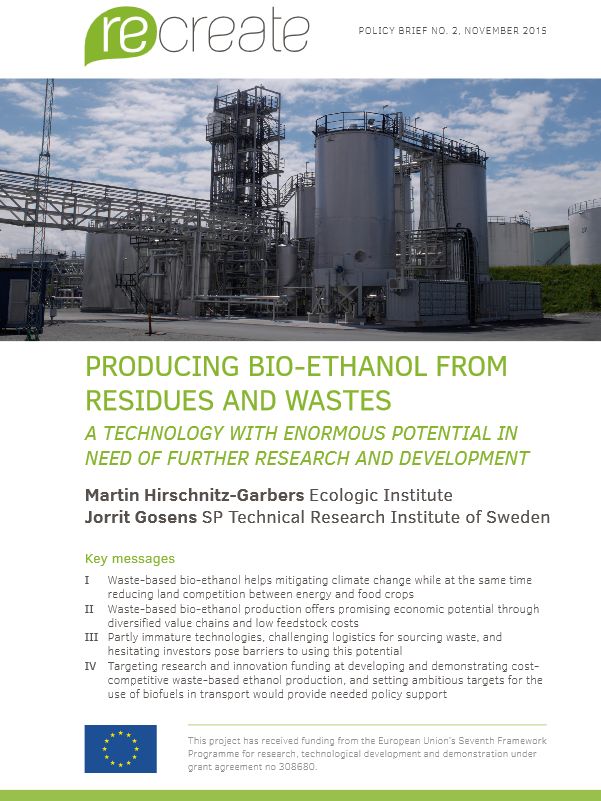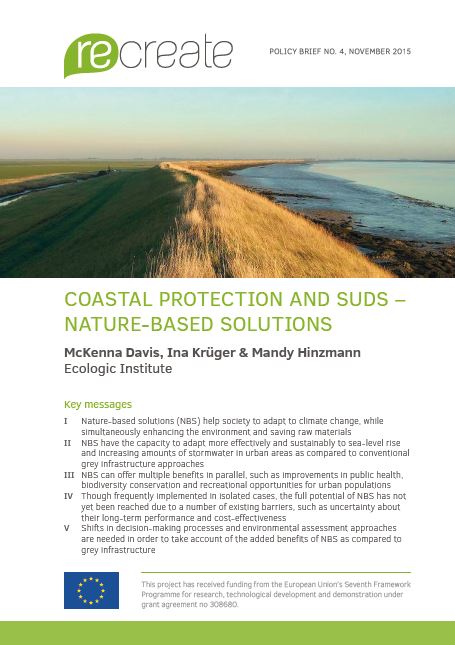Co-creation in Sustainability Science
Challenges and potential ways forward in implementing co-creation in European research and innovation funding
- Publication
- Citation
Hirschnitz-Garbers, Martin (2018). Co-creation in Sustainability Science. Challenges and potential ways forward in implementing co-creation in European research and innovation funding. RECREATE Project Policy Brief No. 9.
This policy brief explores and explains the concept and rational of co-creation, both as a general concept as well as in the specific context of sustainability science. Furthermore, it takes a detailed look at its use and potential in the framework of European research & innovation funding. On this basis, it identifies a number of lessons learned with regard to the application of the concept and puts forward concrete policy recommendations. The RECREATE policy brief, written by Ecologic Institute's Dr. Martin Hirschnitz-Garbers, is available for download.
Key messages of the policy brief are:
- Co-creation is a means to improve and foster the participation of end-users by actively involving them in innovation processes. This is believed to yield a number of benefi ts, including bringing in additional knowledge and creativity; building partnerships and trust; increasing end-user satisfaction; and fostering legitimacy and acceptance.
- Implementing co-creation is challenging for various reasons, such as:
- Differing values assigned to scientific and extra-scientific knowledge – mixing 'objective empirical knowledge' with 'more subjective and judgmental' knowledge
- Need for 'intercultural' dialogue between scientists and societal actors to translate and integrate different kinds of knowledge
- Lack of flexibility in R&I funding to adapt projects to emerging co-creation opportunities
- Lack of skills in knowledge integration and boundary management
- European research & innovation policy could foster co-creation in sustainability, e.g. by
- Fostering conceptual clarity for the term co-creation and embedding a binding and clear definition in H2020, Cohesion and Territorial funding call texts
- Stipulating co-creation in mission-oriented R&I calls covering topics where societal impact and hence meaningful stakeholder participation is essential
- Adapting existing and developing new funding instruments to provide more fl exible and open-ended forms of science funding
- Fostering skills for knowledge integration in science education



